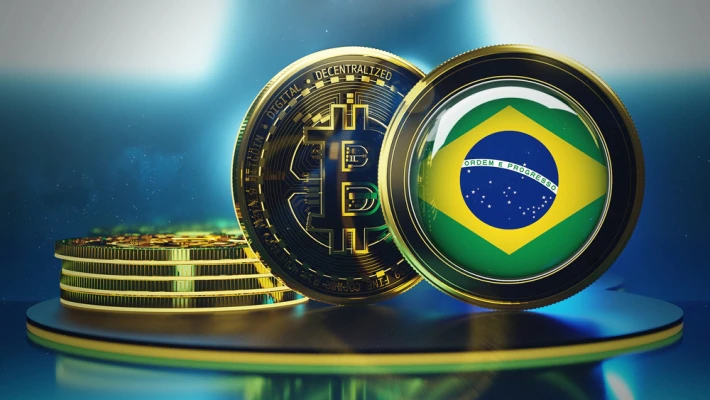RIO DE JANEIRO, BRAZIL – US President Joe Biden signed an unprecedented decree regulating cryptocurrencies in early March. This decree will serve as a guideline for federal authorities to regulate the sector in the country.
According to what fintech expert Marcio Kogut, CEO of Mycon Consórcio Digital, said to the Estadão newspaper, the decision could spark a similar movement toward regulation in Brazil.
But what are the paths to regulating cryptocurrencies in Brazil?
According to the expert, the lack of regulation of cryptocurrencies unsettles investors and opens space for illegal practices such as tax evasion.

“Cryptocurrency leaves no traces, and the authorities cannot know where it comes from,” Kogut explained. The result of this situation, he said, is a market that is fertile ground for illegal practices.
For this reason, countries around the world have started to regulate cryptocurrencies and make trading them safer, for example, the United States.
WHAT IS THE REGULATION OF CRYPTOS IN BRAZIL?
In Brazil, the Senate’s Economic Commission (CAE) passed a law (PL) in February that regulates the rules for the cryptocurrency market in the country.
The proposal was approved after negotiations with representatives from the Central Bank (BC) and the Securities and Exchange Commission (CVM). As the text is being finalized in committee, it can be sent directly to the House of Representatives.
Although the news is being received with optimism by the market, there are thorny issues to consider when regulating cryptocurrencies in Brazil.
According to Kogut, the Brazilian PL focuses only on the security and regulation of cryptocurrencies, and it is possible that the proposal will be adopted superficially and even without much coherence if the relevant authorities are not involved in the final decision.
“Since I first saw the PL, I have noticed that it does not take into account other instruments that use the same technology as cryptocurrencies, such as blockchain, smart contract, and non fungible tokens (NFT),” the CEO said.
HOW TO AVOID FRAUD
Although there is no regulation for cryptocurrencies in Brazil, a number of measures are underway to curb cryptocurrency fraud.
Of note is a code created by the Brazilian Association for Crypto Economy (ABCripto) to self-regulate this market.
In any case, for the International Monetary Fund (IMF), the regulation of cryptocurrencies in a given area has significant limits. In this sense, only a global policy could provide more security for transactions.
In this sense, the body also opposes controversial decisions such as that of El Salvador, the first country to declare Bitcoin an official currency within its borders.
RECORD INVESTMENTS
The cryptocurrency market saw record investments in 2021, paving the way for regulation.
According to the central bank, cryptocurrency imports totaled US$6 billion last year, nearly double the US$3.3 billion in 2020.
The record investment, Kogut said, is putting pressure on regulation. Trading these assets is legal in Brazil, but, as the specialist points out, regulation is necessary to prevent fraud.
For Kogut, the main purpose of regulating cryptocurrencies is to create security in the virtual asset market – both for the investor and for the country.
With information from Estadão

